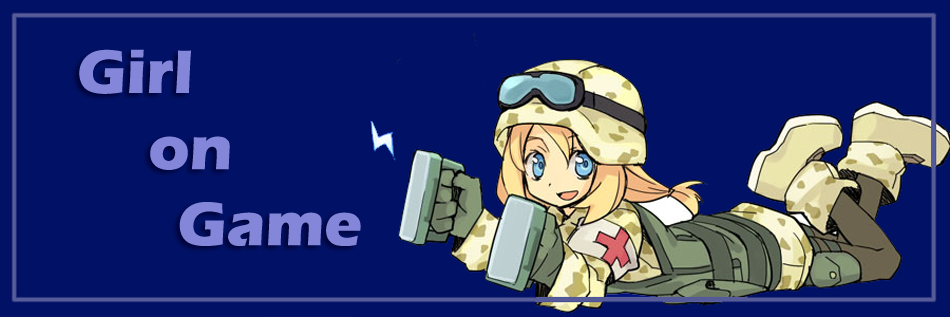So, I was visiting the COD4 boards like a lemming when someone posted this article about gamers preferring to die rather than kill...that is, the kill gives us a sort of "arousal" effect where killing gives us...urm...guilt? Well, I don't know about you, this would certainly explain a bunch of COD servers I've played on lately where people seem to willingly run into your fire to give you uber K/D ratios (after which they normally ban you from their server but oh well).
Seriously though, the studies can say all they want but I DEFINITELY get more "arousal" from launching an RPG into some dolt's face than vice versa. *purr* Or better yet, flattening them PPPPPPANCAKE style. Wahahah.
Gamers Get Their Kicks From Dying
I can't count the number of times I've died.
I can't even count the number of ways I've died. Like most gamers, I've been slaughtered by AK-47-wielding terrorists, poisoned by eldritch spiders and blown up with alien frag grenades. I've also been impaled on medieval swords, ripped limb from limb by dinosaurs and impassively stomped by 20-story-tall, walking war machines that barely noticed my existence.
Yet here's the thing: It's possible that these deaths have been among my most enjoyable game experiences.
This is the fascinating argument of a new paper by Niklas Ravaja, a scientist who has done pioneering research into the emotions of gamers as they play. In "The Psychophysiology of James Bond: Phasic Emotional Responses to Violent Video Game Events" -- published in this month's edition of the journal Emotion -- Ravaja reaches an amazingly counterintuitive conclusion: Gamers don't like shooting their opponents, but they're suffused with pleasure when they themselves are shot dead.
"It was," he tells me when I call him up, "quite a surprise."
I'll say. For his experiment, Ravajas took 36 gamers and wired them up with several sensors that minutely recorded their emotional states, including electromyographic activity in key facial muscles and skin conductance levels. Then he had them play James Bond 007: NightFire, a first-person shooter that was, at the time, a pretty realistic videogame.
The results? When people killed an opponent, their electrodermal activity shot up, while their faces registered distress. "That is, instead of joy resulting from victory and success, wounding and killing the opponent elicited anxiety, anger or both," Ravajas said. When gamers themselves were killed, in contrast, the sensors detected "positively valenced high-arousal affect," he said.
Dying was, in some way, fun.
Ravajas isn't entirely sure why gamers feel this way, though he has theories. If we feel distress when we kill an in-game opponent, it may be because it violates our ingrained sense of morality; we know killing is bad, even when it's virtual. (Interestingly, this stands in contrast to much desensitization theory. Psychologists worry that killing too many virtual enemies numbs you to violence; Ravajas finds it "reassuring" that gamers seem to be resisting this numbing.)
His much weirder experimental result, though, is our thrill at dying. Ravajas thinks this might occur because getting killed is "transient relief from engagement": A first-person shooter is so incredibly stressful that we're happy to get any respite, even if it requires being blown to pieces.
This makes a lot of sense to me. When I play a shooter like Call of Duty 4, the emotional current flows like this: I'll be racing through a war-torn building, hunted down by cackling terrorists, and watching as the blood leaches into the periphery of my vision. My stomach's in knots, and I'm frantically looking for cover when boom -- I'll stumble into a room full of guys with shotguns and get a face full of pain.
As I watch my corpse crumple to the ground, sure, I feel annoyed. But my annoyance isn't as powerful as my sense of release: I can feel my whole body unwind. Indeed, I'm often so wrapped up in the game that I don't even realize how badly I'm clenched up. I may not want to die; but for the sake of my mental health, I probably need to.
Yet, not all deaths are equal. This sounds strange to say, but there are games I enjoy getting killed in more than others, because some designers have a much better sense of how to craft an aesthetically -- and ludologically -- satisfying death.
My hands-down favorite is probably Halo 3 in online multiplayer. The instant you die, the game switches abruptly from the first-person perspective to third-person. Since the physics of Halo are pretty kinetic, often -- after a grenade kill, or a really moist punch to the face -- you watch as your corpse goes pinwheeling gracefully through the air, arms and legs flailing in the grip of rag-doll physics.
This is, in essence, much like the out-of-body experiences people report during near-death moments. Even better, really, because Halo gives you a very high degree of camera control; while I wait to respawn, I'll poke around like a curious ghost, dispassionately examining my former human shell. It's an oddly graceful moment of Zen, and it works in beautiful contrast to the fight-or-flight riot of battle.
Most shooters execute this third-person shift, of course. But Bungie has made it into an experiential tone poem. You could think of it as "the architecture of death," and game designers ought to pay more attention to it. Because one thing's for sure: We're all going to die.
Over and over again.
A tip of the hat to Brandon Erickson for bringing this study to my attention!










No comments:
Post a Comment